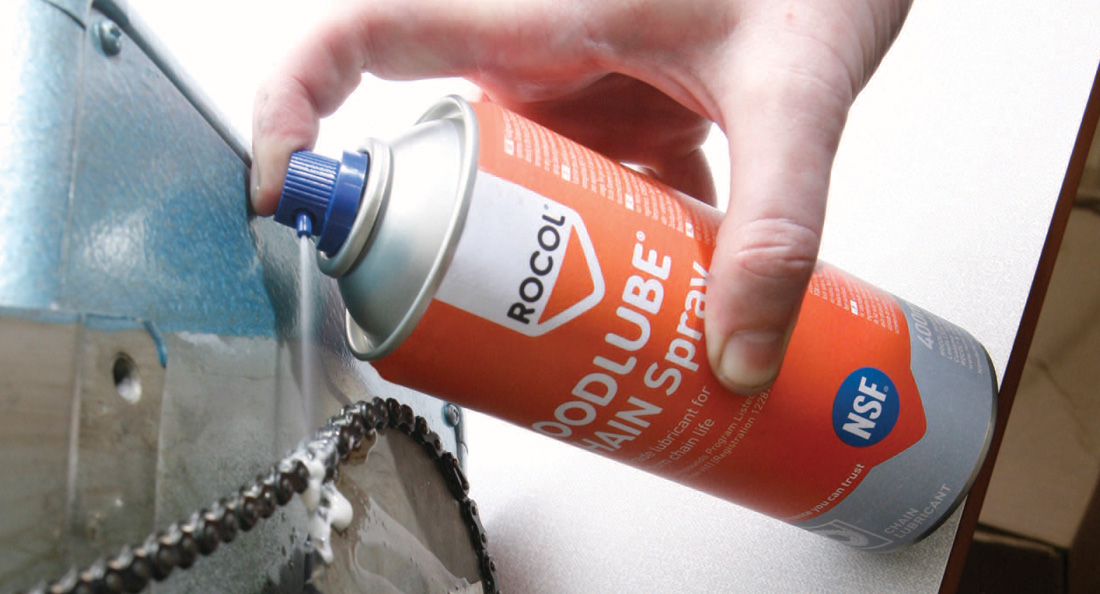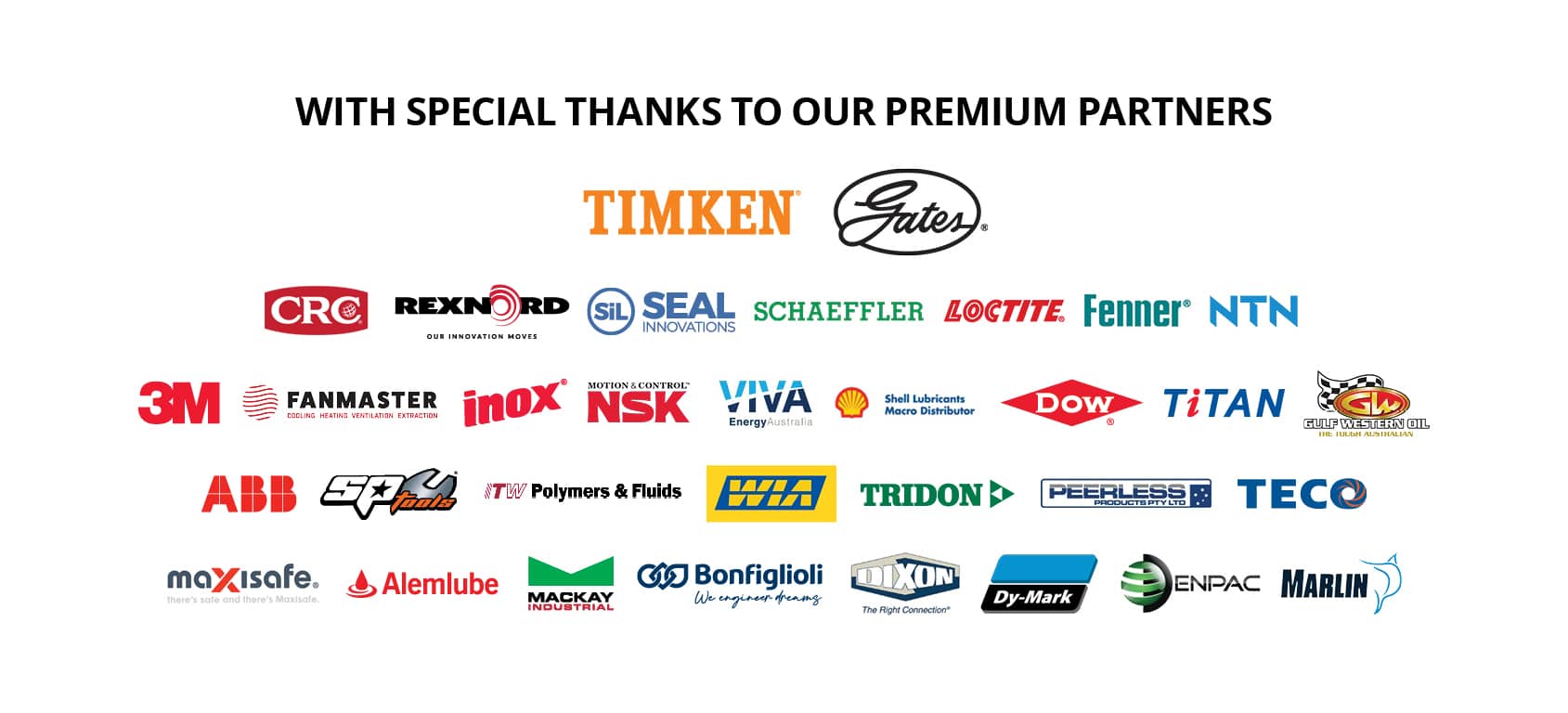
30 Nov A chain lubricant for the safety conscious
Safety was top of mind for a top Australian manufacturer of bakery products when they approached their long-term product suppliers at BSC seeking recommendation for a suitable chain lubricant. Nick Gunn, the BSC Account Manager at the time, recommended the ROCOL® FOODLUBE® Hi Temp Chain Lubricant from ITW Polymers and Fluids, which resulted in a long-term supply program, covering not just the ISO-certified oven chain lubricants, but also a wide range of other oils and greases in the FOODLUBE family.
According to Nick, the ROCOL FOODLUBE portfolio adds an invaluable safety dimension that not only ensures food industry requirements are met, but additionally works to optimise the production in food plants and simplify the overall cleaning process.
“FOODLUBE’s reputation as a globally recognised lubricant for food and beverage manufacturing means that our customer could use the products with complete peace of mind, with no concerns regarding contamination or machinery performance,” he says. “Due to the wide operating temperatures, FOODLUBE Hi-Temp Chain Oil can operate at temperatures ranging from minus 25 degrees to 280 degrees Celsius, they use the same product in their ovens, as well as in their freezers.”
Emilio Seballos, Channel Manager for Heavy Industry at ITW Polymers and Fluids, explains what makes the FOODLUBE proposition attractive for food manufacturers.
“ROCOL FOODLUBE has NSF accreditation, which is globally recognised, and it is also HACCP certified. On top of that, many ROCOL products provide an additional level of safety assurance through their ISO 21469:2006 certification. Like NSF H1, this certification is globally recognised and important for British Retail Consortium audits as it provides credible, independent assurance that products are formulated, manufactured, stored and supplied hygienically and safely.”
Another area where food manufacturers can benefit from the use of ROCOL FOODLUBE products, Emilio explains, is to rationalise and simplify their lubricant inventories.
“The technology behind food grade lubricant products has improved drastically over the last 10 to 15 years. Whereas many food manufacturers still prefer to keep separate inventories for food grade and non-food grade lubricant in their plants, they are increasingly coming to realise the simplifications they can achieve by switching to food-safe products through more of their applications, thus eliminating the risk of cross-contamination in their plants,” he says.
“In the case of the FOODLUBE product range, all the oils and greases are made with a synthetic base oil, which means they don’t break down and carbonise when exposed to high temperatures. This in turn leads to prolonged maintenance intervals as the lubricant does not evaporate from the chain, nor does it cause the chain to drag. The FOODLUBE Hi Temp Chain Spray also has great resistance to water washdowns, so you don’t need to lubricate your chain as frequently in a high water washdown environment. All of this leads to reduced maintenance expenses for the plants and enhances their total reliability and efficiency,” he adds.
As a routine practice, Emilio says the ITW and BSC personnel often perform joint assessments for BSC clients to help them rationalise their inventories.
“The beauty of the ROCOL FOODLUBE portfolio is that many of the products serve multiple purposes. For example, your gearbox oil in one application can be used as chain lubricant in another application. Similarly, your hydraulic lubricant might double up as a chain lubricant, depending on the situation,” he says.
“Where ITW P&F and BSC come into play is to help our customers rationalise their inventories to simplify their management. In one audit we did in conjunction with BSC some years ago, the customer was using 25 different lubricants from 13 different brands. We were able to simplify this down to 12 lubricants from the FOODLUBE range.”
Within this portfolio, Emilio says the FOODLUBE Premier 1 grease has been a “game-changer” in the food industry.
“The FOODLUBE Premier 1 grease is a food grade grease designed for bearings operating at high speeds and high temperatures. Because this grease has a consistency grade of 1, in addition to a wide temperature range of minus 30 to 180 degree Celsius, it can effectively replace multiple types of greases in one application line.
“The FOODLUBE Premier 1 grease is resistant to water washdowns and ISO21469 certified, so you can safely use it where stringent quality control measures are in place.”
The FOODLUBE WD spray is another popular product within the range, Emilio says.
“The FOODLUBE Water Displacement (WD) spray is ideal for use as a general lubricant to protect small components such as linkages, pivots and pins. Having high temperature resistance (up to 120 degree Celsius) and being synthetic based make this a multi-purpose spray that you can use for many applications. The WD Spray is also fortified with PTFE for increased lubricity and like all FOODLUBE products, it is free from colour and odour – which is very important in the food industry.”
As an additional safety measure, all plastic components including the lids and actuators in the ROCOL FOODLUBE products are metal detectable and capable of detection by most metal detection equipment.

